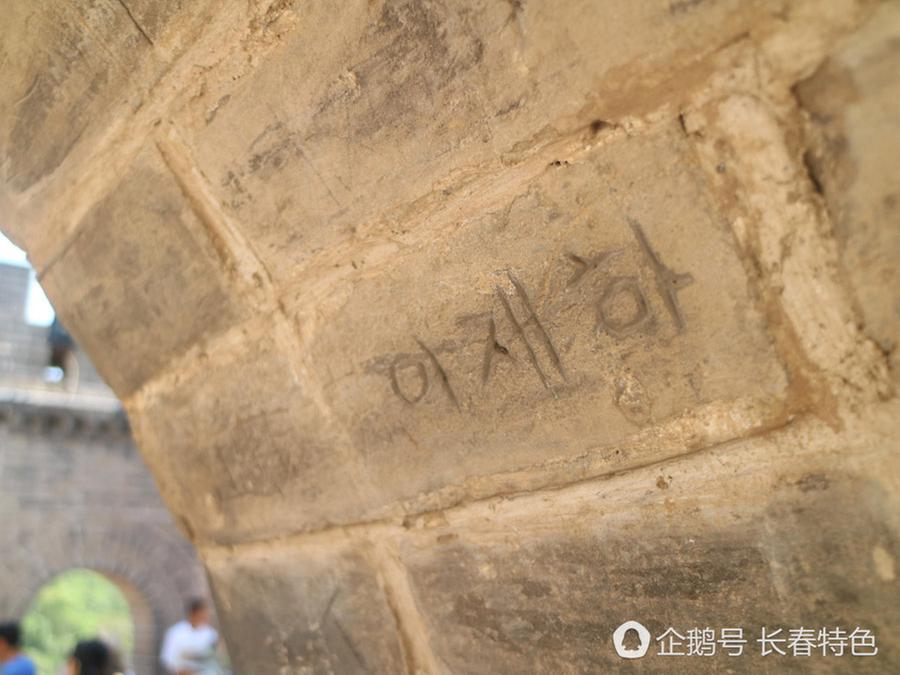Great Wall graffiti photos circulate online
By Guo Kai | chinadaily.com.cn | Updated: 2017-08-16 11:35
 |
| Korean words on a brick of the Great Wall on Aug 11. [Photo/Sina Weibo] |
A range of photos picturing foreign language graffiti on the Great Wall, particularly at the Badaling section, are circulating online. The images have sparked conversation among internet users, along with public anger, and a few netizens have even proposed the installation of signs around the area to limit the behavior.
The photographs on Sina Weibo, a Twitter-like service, show Korean and English words, as well as Chinese characters, scratched onto the bricks of Great Wall.
While scratchings on the Great Wall at the Badaling and Mutianyu sections are not new, particularly among Chinese visitors, the behavior has now attracted the eye of foreign tourists, including Bobby Brown, an NBA player, who cribbled his name and number on the Great Wall in October 2016.
Web users have criticized the behavior as "ill-mannered and uncivilized", and "heavy penalties should be required."
A worker of the Badaling scenic area, who declined to be named, said there were more than 100 patrollers on the Great Wall to prevent damaging behaviors; however, the patrollers had difficult in monitoring the behavior of every one as there were too many tourists in summer.
"Tourists could also report such behaviors to workers on the Great Wall or call police," the worker said.
The country listed the Great Wall's Badaling section in the first group of key national heritage conservation units in 1961, and the State Council, or China's cabinet, approved the scenic area in 1982. It was inscribed on the world heritage list by UNESCO in 1987.
China has the Law on the Protection of Cultural Relics, but has not detailed the penalties on scratching behavior. The Beijing municipal government published a regulation on the protection of the Great Wall in 2003, and according to which, people who scratch the wall could face fines from 200 to 500 yuan ($29.9-$74.7).
Web users said that compared with the punishments on such behavior in other countries, the penalties in China are too light. In Egypt, people who damage cultural relics could face a maximum fine of $100,000 and life sentence, news website chinanews.com reported.
























